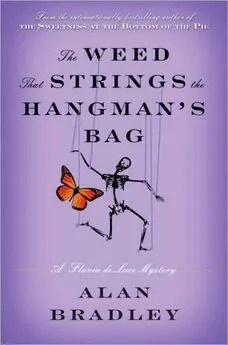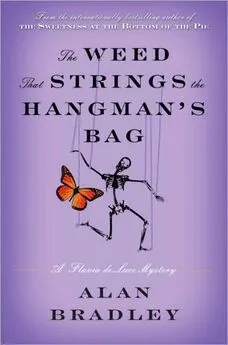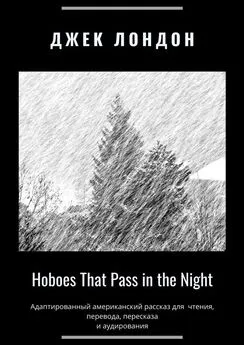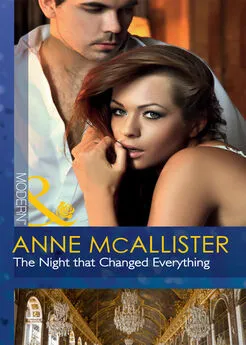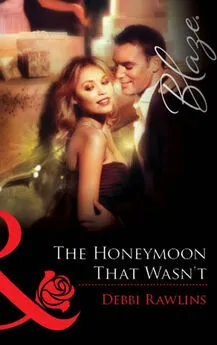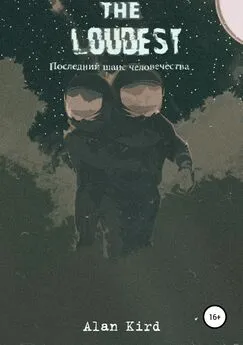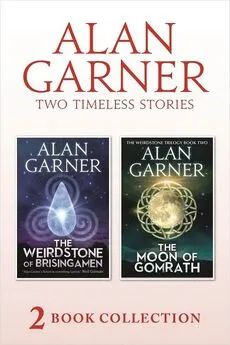Alan Bradley - The Weed That Strings the Hangmans Bag
- Название:The Weed That Strings the Hangmans Bag
- Автор:
- Жанр:
- Издательство:неизвестно
- Год:неизвестен
- ISBN:нет данных
- Рейтинг:
- Избранное:Добавить в избранное
-
Отзывы:
-
Ваша оценка:
Alan Bradley - The Weed That Strings the Hangmans Bag краткое содержание
The Weed That Strings the Hangmans Bag - читать онлайн бесплатно полную версию (весь текст целиком)
Интервал:
Закладка:
Round the back I went. In the long grass, directly beneath a window, lay a monster piece of rusty scrap metal, which looked as if it might have seen better days as a motor in a Daimler. I climbed on top of the things and peered in through the dirt-fogged glass.
The newspapers lay stacked in their wooden bunks as they had done for eons, and the interior had been cleared of the wreckage caused by my last visit.
As I stood on tiptoe, my foot slipped, and I nearly pitched headfirst through the windowpane. As I clutched at the sill to steady myself, something crumbled beneath my fingertips and a river of tiny grains trickled to the ground.
Wood rot , I thought. But wait! Hang on a minute--wood rot isn't gray. This is rotten putty!
I jumped down and within seconds was back at the window with an open-end wrench from Gladys's tool kit in my hand. As I picked away at the edges of the glass, hard wedges of putty broke off with surprisingly little effort. It was almost too easy.
When I had chipped my way round the pane, I pressed my mouth hard against the glass, and sucked for all I was worth to create a vacuum. Then I pulled my head slowly back.
Success! As the pane came free of its frame and leaned out towards me, I grasped the glass by its rough edges and lifted it carefully to the ground. In less time than it takes to tell, I had wiggled through the frame and dropped to the floor inside.
Although the broken glass from my earlier rescue had been cleared away, the place still gave me the shivers. I wasted no time in finding the issues of The Hinley Chronicle for the latter part of 1945.
Although Robin's exact dates hadn't been carved on his headstone, Sally's story indicated that he had died sometime after the harvest in that year. The Hinley Chronicle had been--and still was--published weekly, on Fridays. Consequently, there were only a couple of dozen issues covering the time between the end of June and the end of the year. I knew, though, that I would most likely find the story in an earlier issue than a later one. And so it was: Friday, 7 September, 1945. An inquest will be held today at Almoner's Hall in Bishop's Lacey into the death of Robin Ingleby, five years of age, whose body was found on Monday in Gibbet Wood, near that village. Inspector Josiah Gully of the Hinley constabulary has declined comment at this time, but strongly urges any member of the public who may have information about the child's death to contact police authorities immediately at Hinley 5272 .
Directly below this was printed the notice:
Patrons are informed that the post office and confectionery located in the high street, Bishop's Lacey, will close today (Friday, 7th inst.) at noon. Both will be open as usual on Saturday morning. Your patronage is appreciated. Letitia Cool, Proprietress .
Miss Cool was the postmistress and purveyor of sweets to the village, and there was only one reason I could think of that she would have closed her shop on a Friday.
I turned eagerly to the following week: the issue of 14 September. An inquest convened to inquire into the death of Robin Ingleby, aged five years, of Culverhouse Farm, near Bishop's Lacey was adjourned Friday last at 3:15 P.M. after forty minutes of deliberation. The coroner recorded a verdict of Death by Misadventure, and expressed his sympathy to the bereaved parents .
And that was all. It seemed obvious that the village wanted to spare Robin's parents the grief of seeing the horrid details in print.
A quick look through the remaining papers turned up nothing more than a brief notice of the funeral, at which the pallbearers had been Gordon Ingleby, Bartram Tennyson (Robin's grandfather, who had come down from London), Dieter Schrantz, and Clarence Mundy, the taxicab proprietor. Rupert's name was not mentioned.
I replaced the newspapers in their cradle and, with no more damage to myself than a scuffed knee, shoehorned myself back out of the window.
Curses! It was beginning to rain. A black-bottomed cloud had drifted across the sun, bringing a sudden chill to the air.
I ran across the weeded lot to the river, where fat raindrops were already pocking the water with perfectly formed little craters. I scrambled down the slope and, with my bare hands, scooped out a gob of the sticky clay that formed the bank.
Then back to the Pit Shed again, where I dumped the muck in a mound on the windowsill. Taking care not to get any of it on my clothing, I rolled handfuls of the stuff between my palms, making a family of long stringy gray snakes. Then, clambering up onto the rusty motor once again, I seized the edges of the windowpane, and hoisted it gingerly back into position. With my forefinger as a makeshift putty knife, I pressed the stuff all round the edges of the glass into what looked, at least, like a tight and sturdy seal.
How long it would last was anybody's guess. If the rain didn't wash it away, it might well last forever. Not that it would need to: At the first opportunity, I thought, I would replace it by pinching some bona fide putty and the proper knife from Buckshaw, where Dogger was forever using the stuff to shore up loose panes in the decaying greenhouse.
"The Mad Putty-Knifer has struck again!" the villagers would whisper.
After a quick dash to the river to scrub the caked clay from my hands, I was, aside from being soaked through, almost presentable.
I picked up Gladys from the grass and strolled in a carefree manner up Cow Lane to the high street, as if butter wouldn't melt in my mouth.
Miss Cool's confectionery, which incorporated the village post office, was a narrow Georgian relic, hemmed in by a tearoom and an undertaker's establishment to the east and a fish shop to the west. Its flyblown display windows were sparsely strewn with faded chocolate boxes, their lids picturing plump ladies in striped stockings and feathers who grinned brazenly as they sat half astride cumbersome three-wheeled tricycles.
This was where Ned had bought the chocolates he had left on our doorstep. I was sure of it, for there on the right was the dark rectangular mark where the box had reposed since horse-drawn charabancs had rumbled past it in the high street.
For a fleeting instant I wondered if Feely had sampled my handiwork yet, but I banished the thought at once. Such pleasures would have to wait.
The bell over the door tinkled to announce my entrance, and Miss Cool looked up from behind the post office counter.
"Flavia, dear!" she said. "What a pleasant surprise. Why, you're all wet! I was just thinking about you not ten minutes ago, and here you are. Actually, it was your father I was thinking of, but it's all the same, isn't it? I've a strip of stamps here that might interest him: four Georges with an extra perforation clean through his face. Hardly seems right, does it? Quite disrespectful. Miss Reynolds over at Glebe House bought them last Friday and returned them on Saturday.
"'Too many holes in them!' she said. 'I won't have my letters to Hannah--' (that's her niece in Shropshire, dear)--'being seized for infringement of the Postal Act.'"
She handed me a glassine envelope.
"Thank you, Miss Cool," I said. "I'm sure Father will appreciate having these in his collection, and I know he'd want me to thank you for your thoughtfulness."
"You're such a good girl, Flavia," she said, blushing. "He must be very proud of you."
"Yes," I said, "he is. Very."
Actually, it was a thought that had never crossed my mind.
"You really mustn't stand around like that in wet clothing, dear. Go into my little room in the back and take off your things. I'll hang them in the kitchen to dry. You'll find a quilt at the bottom of my bed--wrap yourself up in it and we shall have a nice cozy chat."
Five minutes later, we were back in the shop, me like a blanketed Blackfoot and Miss Cool, with her tiny spectacles looking for all the world like the Factor at a Hudson's Bay trading post.
She was already moving across the shop towards the tall jar of horehound sticks.
"How many would you like today, my dear?"
"None, thank you, Miss Cool. I left home in rather a rush this morning and came away without my purse."
"Take one anyway," she said, holding out the jar. "I think I shall have one, too. Horehound sticks are meant to be shared with friends, don't you think?"
She was dead wrong about that: Horehound sticks were meant to be gobbled down in solitary gluttony, and preferably in a locked room, but I didn't dare say so. I was too busy setting my trap.
For a few minutes we sat in companionable silence, sucking on our sweets. Gray, watery light from the window seeped into the shop, illuminating from within the rows of glass sweet jars, lending them a pallid and unhealthy glow. We must look , I thought, for all the world like a couple of alchemists plotting our next attack upon the elements .
"Did Robin Ingleby like horehound sticks, Miss Cool?"
"Why, what a strange question! Whatever made you think of that?"
"Oh, I don't know," I said carelessly, running my finger along the edge of a glass display case. "I suppose it was seeing poor Robin's face on that puppet at the church hall. It was such a shock. I haven't been able to get him out of my mind."
This was true enough.
"Oh, you poor thing!" she said. "I'm sure none of us can, but no one wanted to mention it. It was almost ... what's the word? Obscene . And that poor man! What a tragedy. I couldn't sleep a wink after what happened. But then, I expect it gave all of us quite a turn, didn't it?"
"You were on the jury at Robin's inquest, weren't you?"
I was becoming rather good at this. The air went out of her sails in an instant.
"Why ... why, yes, so I was. But how on earth could you know that?"
"I think Father might have mentioned it at some time or another. He has a great deal of respect for you, Miss Cool. But surely you know that."
"A respect that is entirely mutual, I assure you," she said. "Yes, I was a member of the jury. Why do you ask?"
"Well, to be honest, my sister Ophelia and I were having an argument about it. She said that at one time, it was thought that Robin had been murdered. I disagreed. It was an accident, wasn't it?"
"I'm not sure that I'm allowed to discuss it, dear," she said. "But it was years ago, wasn't it? I think I can tell you--just among friends, mind--that the police did consider that possibility. But there was nothing in it. Not a shred of evidence. The little boy went up to the wood alone and hanged himself alone. It was an accident. We said so in our verdict--Death by Misadventure, they called it."
"But how did you know he was alone? You must be awfully clever to figure that out!"
"Why, because of his footprints, love! Because of his footprints! There were no others anywhere near that old scaffold. He went up to the wood alone."
My gaze shifted to the shop window. The downpour had begun to slacken.
"Had it rained?" I asked with sudden inspiration. "Before they found him?"
"It had, in fact," she answered. "In great bloomin' buckets."
"Ah," I said, noncommittally. "Has a Mr. Mutt Wilmott been in to pick up his mail? It would probably be poste restante."
I knew at once that I had gone too far.
"I'm sorry, dear," Miss Cool said, with a barely detectable sniff. "We are not permitted to give out information like that."
"He's a BBC producer," I said, putting on my best slightly crushed look. "Quite a famous one, actually. He's in charge of--at least he used to be--poor Mr. Porson's television program, The Magic Kingdom . I was hoping to get his autograph."
Читать дальшеИнтервал:
Закладка:
